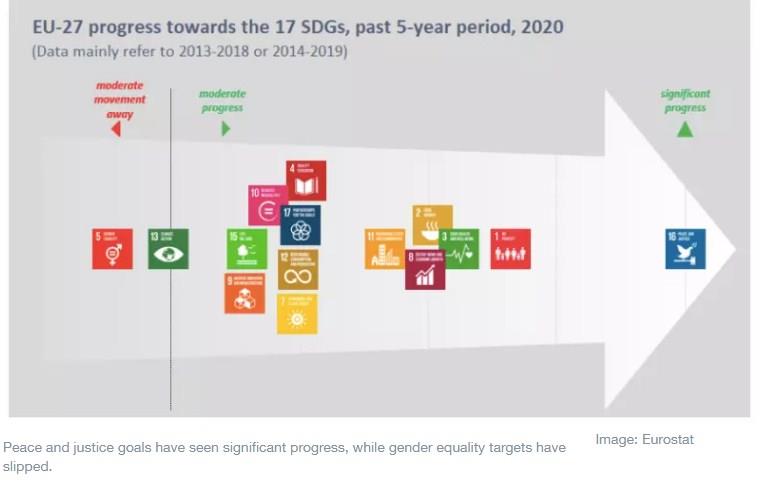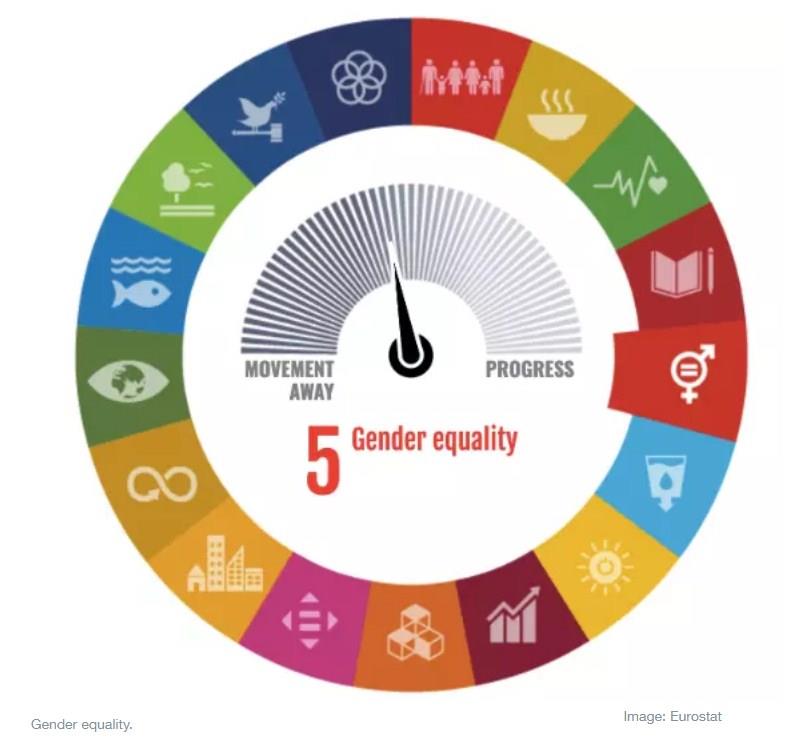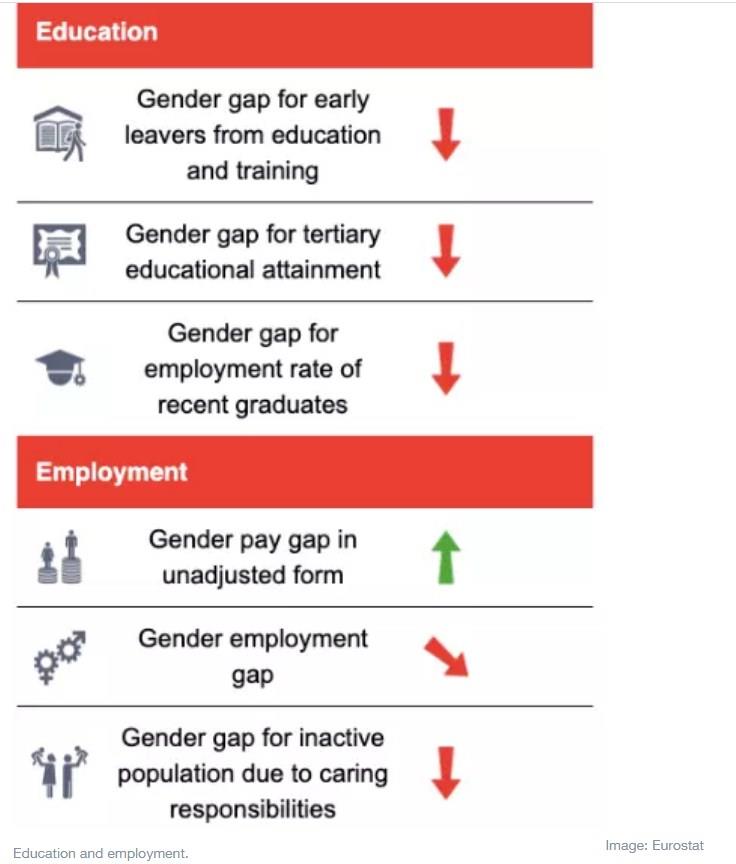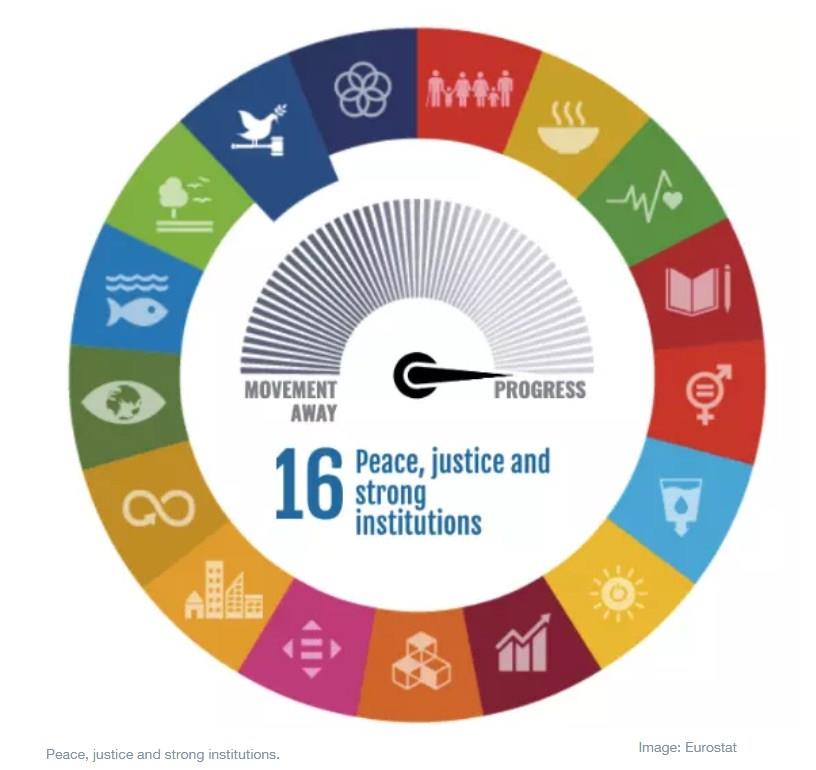by Sean Fleming*
Europe is making progress toward several of the United Nation’s Sustainable Development Goals (SDGs), but other goals still require significant work, according to a report from Eurostat, the statistical office of the European Commission.
There are success stories in areas like Peace, Justice and Strong Institutions, but more is needed to tackle the climate crisis and improve gender equality.
What are the SDGs and why do they matter?
There are 17 SDGs in all, which form the basis of the UN’s 2030 Agenda for Sustainable Development. Each goal tackles a different issue, covering a range of environmental, social, economic and political concerns. They are designed to ensure that access to education, health, prosperity and a clean environment are not overlooked in strategies for economic growth.
The goals share many of the same ambitions and aspirations voiced by the World Economic Forum’s Great Reset initiative. The Great Reset calls for a reassessment of existing structures and systems in the wake of the coronavirus pandemic in order to build a more sustainable and inclusive post-COVID world.
But, as the Eurostat report shows, between 2014 and 2019, the European Union’s progress toward achieving the SDGs was not consistent across each of the goals.

The gender gap has widened
Of particular concern is gender equality, where some progress has moved into reverse. In 2019, the proportion of men of working age in employment exceeded that of women by 11.7 percentage points, which is 0.1 percentage points higher than five years earlier.

Positive steps have been taken, however. Progress is being made to close the gender pay gap. Meanwhile, the rate of women in higher education in 2019 was 10.5 percentage points higher than for men, and increasing numbers of women are in senior leadership roles.

Getting the balance right
Balancing the needs of economic growth and development with those of the environment is one of the most pressing and complex issues facing world leaders. When it comes to climate change, the UN’s Goal 13 says “far more ambitious plans and accelerated action are needed”.
The EU is currently not on-track to meet its 40% emissions reduction target by 2030, according to the report; that said, progress is being made, with 18.9% of energy consumed in the EU in 2018 coming from renewable sources.
It may be too early to say what effect the pandemic-related closures and lockdowns will have. Early indications seem to suggest that there have been some improvements in air quality, but that they are inconsistent and possibly short-lived.
Access to justice
The EU has made substantial progress toward Goal 16 – Peace, Justice & Strong Institutions.
This goal addresses “ending violence, promoting the rule of law, strengthening institutions and increasing access to justice”, as well as broader issues of rights and opportunities. Across the board, from access to justice to consistency in the collection of crime data, progress has been solid: in fact, 50% of the 20 least corrupt countries in the world in 2019 were in the EU.

*Senior Writer, Formative Content
**first published in: www.weforum.org




 By: N. Peter Kramer
By: N. Peter Kramer

